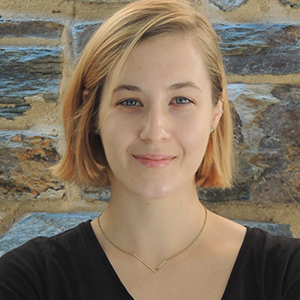Senior Research Associate
Erica Washington, PhD

Erica earned her BS in Biology from the University of Maryland at Baltimore County and her PhD in Biology at the University of North Carolina at Chapel Hill in 2013. She studied type III effector proteins in plant pathogens in the lab of Jeff Dangl. As a postdoctoral scholar in Dr. Richard Brennan’s lab, Erica is studying the trehalose biosynthesis pathway, which is required for virulence in major invasive fungal pathogens (Candida albicans, Aspergillus species and Cryptococcus species). Erica focuses on determining interactions among trehalose biosynthesis enzymes which are critical for function and elucidating the structure of a trehalose biosynthesis complex. Additionally, Erica is working to solve structures of trehalose biosynthesis enzymes in complex with potential inhibitors.
Associate in Research
Susan Grass

Sue earned her BS in biology from Notre Dame and MA in biotechnology/biology from Washington University in St. Louis. In a collaborative effort with researchers at CHOP she investigates the molecular and cellular determinants of bacterial pathogenicity, of non-typeable Haemophilus influenzae. NT. H. influenzae is a common commensal in the nasopharynx and represents the leading cause of otitis media and sinusitis in children and exacerbations of chronic obstructive pulmonary disease in adults. Her current projects include crystal structure determination of the major adhesin and translocating domain expressed by this pathogen.
Sue is also studying enzymes involved in trehalose biosynthesis pathway, which is required for virulence in major invasive fungal pathogens (Candida albicans, Aspergillus species and Cryptococcus species). She is working to solve the structure of TPS2, a trehalose biosynthesis enzyme in complex with a potential inhibitor of the trehaolse biosynthetic pathway.
Graduate Student
Grace Hooks earned her BS in Biology with a minor in Biochemistry from New Mexico State University in 2018. She then spent a gap year at Yale University where she worked as a postgraduate assistant in the Department of Molecular Biophysics and Biochemistry. In 2019 she began her doctoral studies at Duke University and joined the laboratory of Dr. Richard Brennan in the Spring of 2020. Grace’s work will focus on elucidating the induction mechanism of MtrR, which is part of the TetR family, and whose members help the microbe address deleterious environmental changes. Additionally, she will be investigating Hfq, a posttranscriptional regulator that binds small noncoding RNAs.
